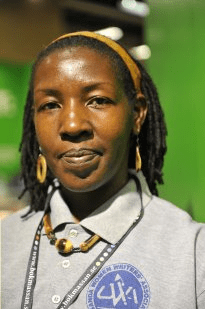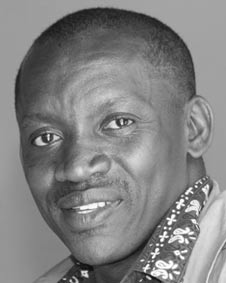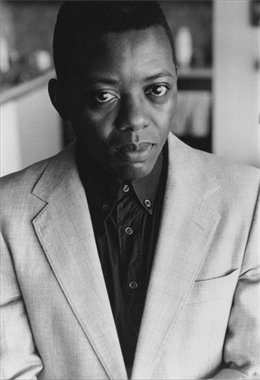
Happy belated 56th independence anniversary, Ugandans!
This independence week at Writivism, we are celebrating by publishing a four-part series that features 56 of Uganda’s writers, active between the 1934 to 2018 period. This list has been inspired by Darkowaa’s GH at 60 | Our Writers & Their Books at African Book Addict and Bakwa Magazine’s 100 Days of Cameroonian Literature.
A Note on Process
Our four parts in the series are separated by the year in which a writer “emerged” on the scene through what one would say was their first recognizable work that announced their presence as a writer. The years that separate the parts therefore do not necessarily connote to the ages of the writers nor the entire spans of their writing careers. Some published their first prominent works in the 1960s and are still publishing today, for example. We have also considered the various forms of writing, including drama, poetry, fiction, nonfiction, among others. That said, 56 is a small number, given the years we are covering, and so many of your favourite writers are missing. In fact, one can compile a list of 56 Ugandan writers and more for every form. We have also considered Ugandan diasporic writers in compiling the list. Realizing that the language in which writers produce their work remains a big talking point at events and in other literary conversations, we have also paid attention to writers whose work comes in Ugandan languages, alongside English.
In compiling this list during independence week, we are highlighting the world-building of Uganda’s writers, looking at the way this aspect of their work functions in the context of the nation trying to construct itself. As we attempt to move from independence to decolonization, it is the radical imaginations of these writers which have framed, defined and sought solutions to Uganda’s growing pains. We are alive to the fact that Uganda has not moved through its various states of being peacefully. It is thrashing, fighting and occasionally flailing in its attempts to reconcile itself as a colonial construct in a (supposedly) post-colonial age.
Early research for the list was done by Jacob Katumusiime, and Joel Benjamin Ntwatwa (R.I.P), who published a rip-off from that research in February 2017, here. I have worked with Esther Mirembe and Bwesigye Bwa Mwesigire in the final compilation that appears in the series. Many of the biographies was taken from other sources. That said, as is customary, I take responsibility as the lead on the project and author of the list.
Part II (1986-1999)
Part II of the series highlights the power of creating and maintaining writing communities. When going through this list, one will see the name FEMRITE appear frequently. Don’t worry – they didn’t sponsor this list! What they did achieve (and continue to excel at), however, is that they nurtured the talent of Ugandan writers gendered as women, ensuring that they would have a platform and that their voices could be amplified in Ugandan and international literary spaces. In many ways, their collective has inspired Writivism and the work we do. As before, we did not fit everybody who made contributions to the literary landscape between 1986-1999 but we would love to hear which other people whose work was first published in this period left an impact on you and why.
By Sheila

Philippa Namutebi Kabali-Kaggwa “To You My Friend” (1986)
Phillipa Kabali-Kaggwa was born in 1964 to a Ugandan poet Christopher Henry Muwanga Barlow and Fayce Lois Watsemwa Barlow. She went to Nakasero Primary School and later to Gayaza High School. Her family relocated to Ethiopia in the early 70s. She later joined Makerere University where she spent a year as an occasional student in the department of Music, Dance and Drama. In 1984 she joined Kenyatta University to pursue a Degree in Education. She graduated in 1987 with B.ED Hons in Music and Literature. Her published works include “Flame and Song: A Memoir”, children’s books include “Katiti’s Song”, “Mkhulu and Me”, “Kea Goes to school”, “Tyres and tubes”.

Jane Kaberuka “Has God Forgotten Me? The Cry of an Accident Victim” (1990)
Jane Alison Kaberuka is a Ugandan writer of fiction and autobiography, and also a civil servant. Born in 1956, in Bunyoro, Western Uganda, she went to Kyebambe Girls Secondary School and Gayaza High School and later joined Makerere University for her B.A science degree. She has published novels such as “Silent Patience” and “It’s Natural Darling” among others.

Lillian Tindyebwa “Recipe for Disaster” (1994)
Lillian Tindyebwa is a Ugandan writer who has authored numerous books, most notably the novel “Recipe for Disaster” (1994) which was published as part of the “Fountain Youth” series. She is a member of FEMRITE and she has also served as a member of the jury committee of the Burt Award for African Literature for Children’s Book project for Tanzania. She also assisted in training the participating writers in creative writing skills. She is the director of Uganda Faith Writers association, an organisation that trains and develops Christian writing and publishing. Her published works also include “A Time to Remember” (2008), “Maggie’s Friends” (2008) and many other short stories that have featured in the many anthologies of FEMRITE.

Goretti Kyomuhendo “The First Daughter” (1996)
Goretti Kyomuhendo is a Ugandan Novelist and feminist. She served as the first Programmes Coordinator for FEMRITE and her founding of African Writers Trust earned her notice in African literary circles. She was a participant in the inaugural International Literature Festival Berlin in 2001 and she has been internationally recognised for her novels. Her first novel “The First Daughter”, was published in 1996 followed by “Secrets No More” (1999) which won the National Book Trust of Uganda Award for 1999. “Whispers from Vera” was published in 2002. “Waiting: A Novel of Uganda’s Hidden War” has gotten the most international recognition to date. She has also written children’s books such as “Justus Saves His Uncle” and “A Chance to Survive”.

Julius Ocwinyo “Fate of the Banished” (1997)
Julius Ocwinyo is a Ugandan poet, editor and novelist famous for his novel, “Fate of the Banished”, “Footprints of the Outsider”, “The Price of Grandma’s Love” and “The Unfulfilled Dream” (2002). Ocwinyo’s works have appeared in several anthologies and newspapers. His poetry has been published in the “Uganda Poetry Anthology”.

Mary Busingye Karooro Okurut “The Invisible Weevil” (1998)
Mary Busingye Karooro Okurut more commonly known as Karooro Okurut is a Ugandan educator, author and politician. She was born in Bushenyi District on 8 December 1954. She attended Bweranyangi Primary School and Bweranyangi Girl’s Senior Secondary School for her elementary and middle school education respectively. In 1972, she joined Trinity College Nabbingo for her high school education and in 1974 she entered Makerere University, graduating in 1977 with the degree of Bachelors of Arts in Literature. She is a founding member of FEMRITE. Her most acclaimed novel “The Invisible Weevil” was published in 1998 and was followed by “The Official Wife”. Her latest novel is “The Switch” which narrates the horrors of FGM in the eastern region of Uganda.

Hilda Twongyeirwe “Becoming a Woman” (1998)
Hilda Twongyeirwe is a Ugandan poet, writer and editor who, since 2003, has been involved in development work after retiring from teaching the English Language in secondary schools. An editor, a published author of short stories and poetry, and a recipient of a Certificate of Recognition (2008) from the National Book Trust of Uganda for her children’s book, “Fina the Dancer”, Hilda is a celebrated writer on the literary scene of Uganda. She was a founding member of FEMRITE, which she joined as a student at Makerere University and is currently the coordinator of the Association. She has edited fiction and creative non-fiction works and also contributed to many collections of poetry and short stories, the most recent being “Wondering and Wandering of Hearts” (2017).

Anne Ayeta Wangusa “Memoirs of a Mother” (1998)
Ayeta Anne Wangusa is a Ugandan fiction writer, editor born in 1971 to Timothy Wangusa. She had her first novel, “Memoirs of a Mother” published in 1998 to great acclaim in Ugandan Literary circles. She is an active member of FEMRITE and worked as an editor for “The New Vision nNewspaper, where she specialised in writing book reviews and features. Ms. Wangusa was educated at Makerere University where she received her M.A. in Literature in 1996. She also served as an advisory Board member of the African Writers Trust. In addition to her literary career, Wangusa has had a parallel career in social development, governance, and Women’s Rights.

James Ocita “Orphan Boy” (1998)
James Ocita is a Ugandan academic and writer whose 2002 novel, “Orphan Boy” made him a household name. His second publication is “Should I Ask Dad?” He has published several academic essays and he is working on a novel. He teaches Creative Writing in the Department of Literature at Makerere University. He is currently the secretary to the African Humanities Consortium (AHC).

Susan Kiguli “The African Saga” (1998)
Susan Kiguli is a poet and literary scholar. An associate professor of literature, Kiguli has long been an advocate for creative writing in Africa which include being a founding member of FEMRITE, a judge for the Commonwealth Writers’ Prize (African Region 1999), and an advisory board member of the African Writers Trust. She is best known for her collection of poems “The African Saga” and for her performances and advancement of oral literature. She has performed at numerous literary and conferences including the International Literature Festival Berlin (2008), The Poetry Africa Festival in Kwazulu-Natal, South Africa (2009) the World Social Forum in Nairobi, Kenya (2007) and the Leeds Centre for African Studies, University of Leeds, United Kingdom (2005). She has won different awards including the National Book Trust of Uganda Poetry Award (1999), Kiguli has also written poems for children. She was was selected by readers as “one of the most loved Love Notes of its month”. She currently teaches creative writing at Makerere University.

Charles Mulekwa “A Time of Fire” (1999)
The name Charles Mulekwa is as synonymous to Drama in Uganda like Robert Serumaga’s was in the 1970s. He has won several local and international play writing awards. He writes for both radio and screen. His works include “The Woman in Me”, “The Eleventh Commandment”, “Bond of the Knife”, “Where Power Lies” and “Hands of My People”. Radio and video series include “Secrets of Bomboka”, “Kafunda Stage”, “Fires of Hope” and “A Question of Children”. Some of the works have been translated into the local languages for example “A Time of Fire” (1999) and “Nothing Against You” which won the 1996 BBC African Performance Award.

Moses Isegawa“Abyssinian Chronicles” (1999)
Moses Isegawa is a Ugandan-Dutch writer currently residing in the Netherlands. The politics of Uganda have formed the basis of the subject matter of his novels. Isegawa is the author of the widely acclaimed “Abyssinian Chronicles” (1998) and “Snakepit” (1999).
Sources:
https://wikivividly.com/wiki/Philippa_Namutebi_Kabali-Kagwa
https://wikivisually.com/wiki/Jane_Kaberuka
https://www.revolvy.com/page/Lillian-Tindyebwa
https://www.revolvy.com/page/Julius-Ocwinyo
https://en.wikipedia.org/wiki/Mary_Karooro_Okurut